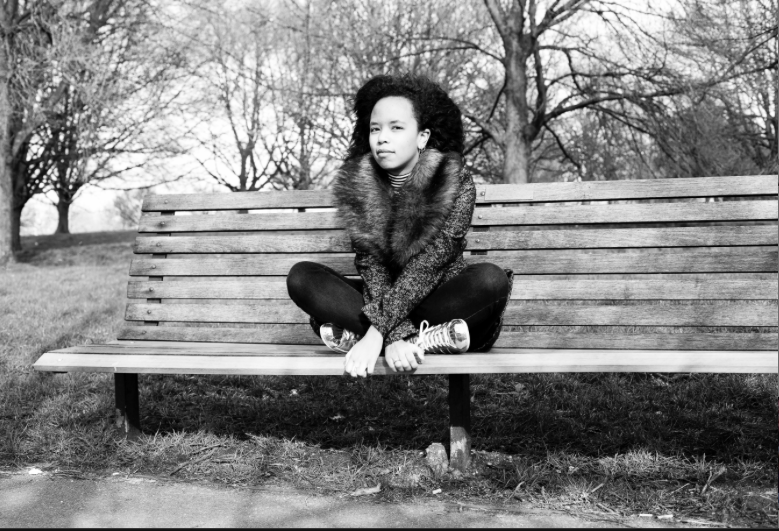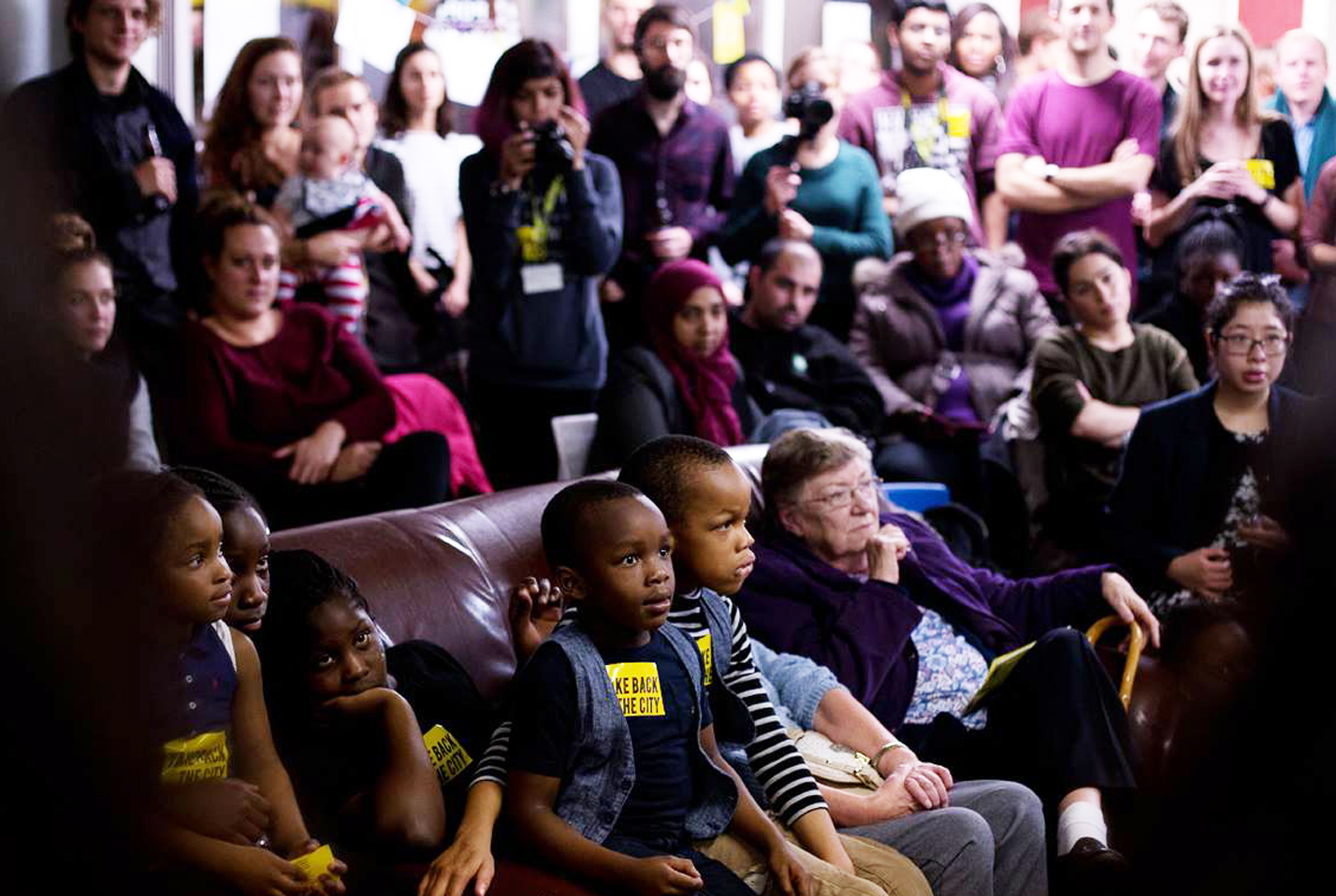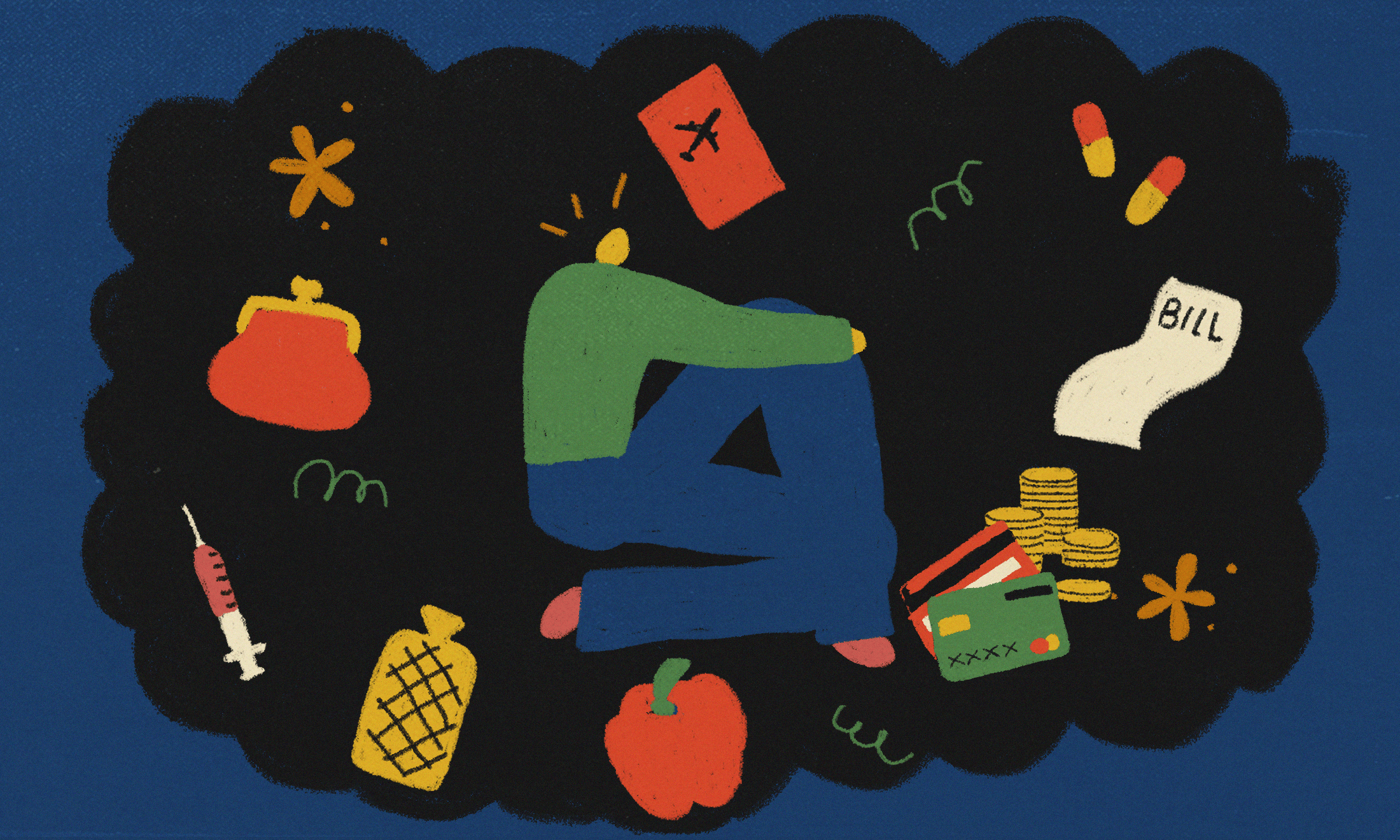
gal-dem in conversation with Amina Gichinga – the woman behind Take Back the City
Suyin Haynes
15 Apr 2016
I meet Amina Gichinga for breakfast on a Wednesday morning at the Olive and Lemon, a café blooming with plants and booming with classical music on Stratford Broadway. She rushes in with a cute turtleneck top on and promptly orders a mint tea as we sit down to chat about her election campaign for the Greater London Assembly (GLA), taking place alongside the London Mayoral Election on May 5.
Amina is not standing for a mainstream political party, but instead is representing Take Back the City (TBTC) in her campaign for the City and East seat on the GLA. A self described “growing group of disillusioned Londoners”, this grassroots organisation is campaigning to put the marginalised into the decision-making echelons of London’s political centre; working with community, youth, workers’ and migrant groups to collect views on what can be done to amplify the voices of London’s silenced masses.
Born and bred in Newham, Amina did politics at Goldsmiths before starting her career as a freelance singing teacher in schools all over London. We talk about our uni experiences, where I bemoan the white curriculum that I’m currently struggling with, and she completely agrees. “I didn’t really think about it then, that the system I was in was incredibly white. I didn’t feel comfortable, and I didn’t really find my politics there. It was just dry.com to be honest with you.” So I ask her where she did find her politics, if it wasn’t at uni. “Right on my doorstep. Living in London and being a student is fucking hard.”
We talk about her days at working at Lush and getting to grips with social justice and environmental campaigning there: “I was that ‘green’ girl in the shop, where I’d try and engage customers with our causes and campaigns”. Amina then got involved with the Momentum Project, working with local communities in Newham and the Docklands area that were facing expansion from London City Airport. “Often, these people had absolutely no idea what was going on, and that really highlighted for me how unequal communities are in the capital. This all started in 2012, but I wouldn’t really call myself an activist. I actually find that term quite toxic. People have a perception of activists, as hippy and idealist…they have goodwill and good intentions, but really don’t engage with the communities that their activism should be based upon. What you then end up with is white middle class people leading on issues that don’t directly affect them. This has really changed with the housing crisis though, where more working class and PoC have taken ownership in action.”
Our conversation then turns to identity; as I realise I’ve gotten slightly ahead of myself by delving straight into politics. With a Kenyan father and a Singaporean mother, Amina’s heritage is an unusual one; something I can definitely relate to being half Malaysian myself. We talk about the shared experiences of growing up as a WoC in the capital, and striking the balance between our multiple identities. “My identity is complex, and while that’s not to say other people’s aren’t, I do feel there aren’t many people like me; I feel like one of the only black-Chinese people up in here. I always got a strong sense of being Kenyan from my dad; he taught me about the struggle against British colonial rule.” I ask her whether she feels a stronger tie to one side then the other. “I look more Kenyan than Chinese, or so I’ve been told. Balancing and coming to terms with my identity isn’t like a ‘woe betide me’ type thing, it’s just getting to grips with the different facets of who I am.”
And how about growing up in London, the place we’re constantly told is a multicultural hub but is constantly coming under threat from gentrification under the guise of ‘development’? “I feel that London, as a PoC growing up and in the poorer communities, is actually awesome. You just get this stronger sense of ‘yeah I’m an ethnic minority, but here I’m the majority’, and it feels safe. The women I learnt about in school were probably more WoC focussed than you would get in other areas because of the demographic. In my teenage years, I did struggle with my sense of self. People pigeonhole you and because I was into rock music and skateboarding, I did feel pigeonholed into that box of ‘coconut’ or ‘you’re white really’.”
I ask her about the community around her in Newham, and she pauses thoughtfully for a second. “It’s through colonialism that I’m existing on this planet. My dad was born under colonial rule in Kenya, my mum was a postcolonial child in Singapore and they stayed in Britain to raise me and my sister at that moment with all of these PoC coming together united in their struggle. London has brought together all these people and more than anything I would say that I’m a Londoner before saying I’m Kenyan or Chinese. It important that the idea that you can come from anywhere and make a life for yourself and your family in London is protected, and unfortunately, that has been changing very, very swiftly.”
This brings us very nicely on to TBTC and how Amina got involved. She tells me that she had “been to a lot of activist meetings before, but never really felt comfortable enough, intellectual enough or even well suited enough to a movement as a PoC”, but was introduced to the organisation through an old teacher. “I liked the idea that we had to be a group that listens and this was informed by the work I did with Momentum in Newham. I could really get behind it knowing that we were going to be working and engaging with communities.” As part of building a People’s Manifesto, TBTC has been in discussion with groups all over London: “we’re not imposing our politics on people, but finding out what communities have to say and what they want. Like women’s refugee groups for example; they’ve got needs that I didn’t even realise and that I take for granted all the time. If you haven’t lived the experience, you overlook these issues that actually, thousands of people face.”
It’s a tricky ask, but I wonder if Amina can crystallise her main motivations for standing for the GLA City and East Constituency, which covers Newham, Tower Hamlets, Barking and Dagenham. “I said I’d run because this is my area, and I feel like there’s a lot of injustice perpetrated by a council that should be working for people, but it just isn’t: we’re getting social cleansing instead. Basically, I’m fucking angry! That anger combined with TBTC and the People’s Manifesto has made me feel empowered to try and address the needs of my community.” I ask if she’s seen particular communities disproportionately affected by government policy. “Working with the community beside the Docks, there’s been shitloads of stuff happening in terms of development and the existing communities are just not consulted about these hugely important changes. A lot of the community there is of West Africa or Caribbean heritage, and they just aren’t informed of what’s going on. You can see the path that the council wants to take and residents don’t have a say; they are from so many different backgrounds that they don’t even communicate amongst eachother, and that is a result of the media representations of racism, invoking fear. It’s a classic divide and rule strategy taken by the government.”
So what are Amina’s and TBTC’s next steps leading up to the election? “We’re doing loads of stuff, like putting on singing workshops in public space and drawing people’s attention to us. We can draw attention to big issues through singing, which is my passion, and it’s a fun way of engaging regular people in politics. We’re trying to make TBTC more accessible to the ordinary person, not just the ‘activist’; so as well as door knocking, we’re doing different actions such as invisible theatre and spoken word events to bring people into the conversation. People fall deaf to the same old shit nowadays so we need to find other ways to engage them; it is overwhelming the issues that face us, and that’s why people don’t get involved, because they just feel powerless.”
Clearly TBTC are going to be busy in the run up to the elections, so I ask what people can do to help and support Amina and her campaign. Organising meetings for the People’s Manifesto are currently on Thursdays at SOAS, although Amina says she thinks they should move further east, and more info can be found on their website. “Talk to us about TBTC means to you” is Amina’s message: “my dream is to have people using TBTC to run with whatever ideas they want to, as long as they keep our key principles in mind to respect the needs of others”. The group is also looking for event ideas and people to collaborate with over the coming months.
And finally, as we finish our breakfast, I ask Amina if she has any final messages, particularly for WoC who may be thinking about getting into politics or activism. “If you think you’re being hypersensitive to stuff, you’re not. If you’re facing things making you feel uncomfortable, you probably are. When you start to unpack your experience and share them within your community where you are safe, you have a right to be angry. We need to become political about these issues and maintain solidarity with groups like Sisters Uncut, like E15. The experience I had of being in City Hall and in a room with supposedly liberal, universalist people…made me realise more than ever that TBTC needs power in that place to change the structures we are living in. It gave me a sense of urgency that PoC, and especially WoC, can’t shy away from that environment, but need representation in it. All these basic things you don’t think will happen are happening; I want to shake things up because clearly there’s not tension in the air. WoC MPs getting mistaken for cleaners, WoC speakers getting mistaken for waitresses, I want to change that. I have to at least try.”










